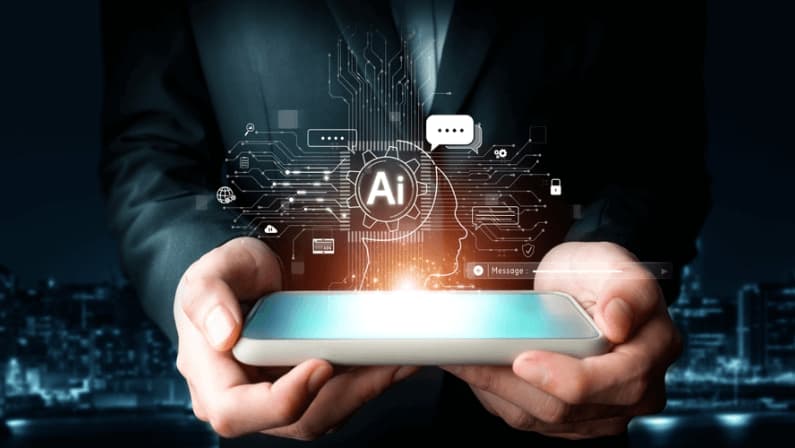Artificial intelligence is rapidly transforming approaches to management, customer service, and decision-making in business. What seemed like a futuristic scenario not long ago is now becoming part of companies’ operational reality. Process automation, intelligent data analysis, and personalized customer interactions — all of this has become possible thanks to AI. The most noticeable changes are seen in sectors where speed and precision matter most: from finance and logistics to online entertainment. For Hungarian businesses actively undergoing digital transformation, AI has become a key driver of growth.
A New Era of Digital Efficiency
In recent years, artificial intelligence (AI) has become an integral part of the business landscape. From small enterprises to multinational corporations, companies are striving to adopt AI tools to cut costs, accelerate service, and anticipate customer behavior. While these technologies were once primarily used in IT, today AI is making its way into retail, finance, healthcare, and the online entertainment sector.
Notably, the entertainment industry was among the first to adopt machine learning and neural networks on a mass scale. For example, online casino platforms implement intelligent systems that analyze player behavior, generate personalized offers, and optimize user experience in real time. As a result, users receive more than just access to games — they are immersed in an ecosystem built on predictions and customization tailored to individual preferences.
Chatbots: Digital Employees Without Holidays
Chatbots are one of the simplest and most illustrative ways to integrate AI into business processes. They no longer merely respond to basic questions but actively participate in client communications, making them fast, accurate, and effective.
One of the most common applications of AI in business remains chatbots. These virtual assistants replace dozens of support agents by instantly responding to user queries. They are trained on dialogues, use natural language processing (NLP), and become increasingly accurate over time. In Hungarian companies, especially in e-commerce, chatbots are already considered standard. Clients receive instant responses, and businesses benefit from uninterrupted service 24/7.
Chatbots have gained wide adoption in banks, delivery services, and even travel agencies. They can help select a product, place an order, provide delivery information, or even book tickets. In the online space, including casinos and entertainment platforms, chatbots often serve not only as support agents but also as navigators, helping new users quickly get oriented.
Recommendation Systems and Personalization
When it comes to customer retention and increasing conversion, a personalized approach comes to the forefront. AI enables businesses to anticipate customer desires even before a request is made.
AI also powers recommendation algorithms. These systems are first encountered when watching movies or shopping online. However, the depth and precision of modern models are impressive: they analyze not only a user’s past behavior but also that of similar users, time patterns, seasonal interests, and even psychological triggers.
Companies in the digital sector use these algorithms to increase user engagement and boost conversion rates. In online stores, AI recommends products likely to interest the customer. And in the online gaming sector, including online casino platforms, it can tailor bonus offers or suggest slot games based on a player’s history. This level of personalization enhances loyalty and creates a sense of individual attention for the user.
Predictive Analytics: A Look Into the Future
After personalization, the next level of AI development is the ability to predict customer behavior and market dynamics. For businesses, this is a powerful strategic planning tool.
The most powerful AI tool in business remains predictive analytics. It allows companies to not only analyze the past but also build models of future events. With it, businesses can forecast product demand, optimize inventory, anticipate customer churn, or even assess the risk of late payments.
Hungarian enterprises in logistics, banking, and retail are increasingly integrating such solutions. Predictive models are built using machine learning, where the system continuously improves forecast accuracy with each new data iteration. This makes AI particularly valuable in unstable markets and high-competition environments.
Ethical Challenges and Development Prospects
Any technology that deeply integrates into everyday life raises important questions. In the case of AI, these relate to data, transparency, and social responsibility.
Despite its clear advantages, the use of AI in business comes with challenges. One is algorithm transparency. Companies must understand how and why AI makes decisions. Another is data protection. Personalization requires the analysis of large amounts of data, necessitating strict adherence to GDPR and local data processing regulations — especially relevant in the EU.
Additionally, concerns about machines replacing people continue to grow. Although AI does automate routine tasks, it also creates new professions — such as analysts, AI system operators, and model developers. Thus, the issue is not replacement, but redistribution of tasks.
Conclusion: A Necessity, Not a Luxury
Discussions about AI are no longer about the future — they are about the present. Technologies that were experimental just yesterday are now setting the standard for efficiency.
Artificial intelligence is no longer the domain of tech giants. Today, AI tools are accessible to companies of all sizes. From simple chatbots to complex analytical platforms, every business can find a solution tailored to its needs. What matters most is a thoughtful approach and a willingness to invest in education and ethical technologies.
Given the speed with which these innovations are entering everyday business practices, it’s safe to say that in just a few years, AI will be as commonplace as the internet or mobile communication. Especially in Hungary, where the business environment is actively adapting to digital challenges and increasingly using intelligent systems as the foundation of competitiveness.


 For whom the event is for
For whom the event is for